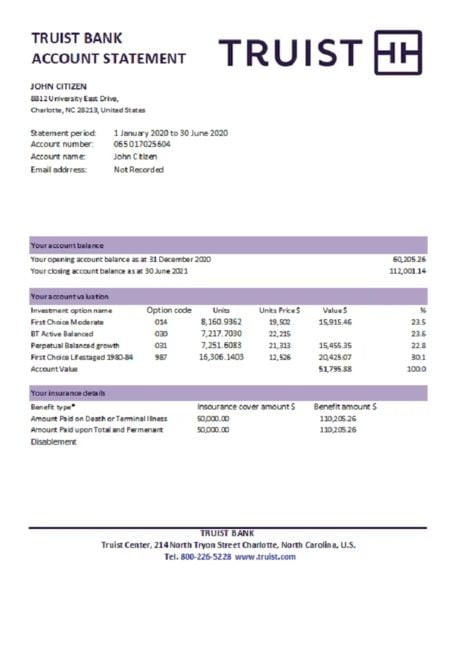In the world of personal finance, credit scores play a crucial role in determining an individual’s financial health. A good credit score can open doors to better loan options, lower interest rates, and greater financial flexibility. However, many people struggle to improve their credit scores, often feeling like they’re stuck in a never-ending cycle of debt and financial uncertainty.
But what if you could unlock the secrets to improving your credit score quickly and effectively? What if you could discover the magic formula for achieving a perfect credit score?
In this comprehensive guide, we’ll explore the world of credit score magic, revealing fast and effective tricks to help you improve your credit score and achieve financial freedom.
Understanding Credit Scores Before we dive into the magic tricks, it's essential to understand how credit scores work. A credit score is a three-digit number that represents an individual's creditworthiness, ranging from 300 to 850. The score is calculated based on payment history, credit utilization, length of credit history, credit mix, and new credit.
Credit Score Ranges
– Excellent Credit: 750-850
– Good Credit: 700-749
– Fair Credit: 650-699
– Poor Credit: 600-649
– Bad Credit: Below 600
Fast and Effective Tricks for Improving Your Credit Score
Now that we’ve covered the basics, let’s explore the magic tricks to improve your credit score quickly and effectively.
Trick #1: Pay Your Bills on Time
Payment history accounts for 35% of your credit score, making it the most critical factor. To improve your credit score, focus on paying your bills on time, every time.
– Set up automatic payments: Ensure you never miss a payment by setting up automatic payments for your bills.
– Create a budget: Develop a budget that accounts for all your expenses, including bill payments.
– Prioritize payments: Prioritize your payments, focusing on the most critical bills first.
Trick #2: Reduce Credit Utilization
Credit utilization accounts for 30% of your credit score. To improve your credit score, focus on reducing your credit utilization ratio.
– Keep credit utilization below 30%: Aim to keep your credit utilization ratio below 30% for all credit accounts.
– Pay down debt: Focus on paying down debt, especially high-interest debt, to reduce your credit utilization ratio.
– Avoid new credit: Avoid applying for new credit, as this can negatively impact your credit utilization ratio.
Trick #3: Monitor Your Credit Report
Your credit report plays a critical role in determining your credit score. To improve your credit score, focus on monitoring your credit report regularly.
– Check for errors: Review your credit report regularly to identify errors or inaccuracies.
– Dispute errors: Dispute any errors or inaccuracies found on your credit report.
– Monitor for identity theft: Monitor your credit report for signs of identity theft.
Trick #4: Avoid Negative Marks
Negative marks, such as late payments or collections, can significantly impact your credit score. To improve your credit score, focus on avoiding negative marks.
– Pay bills on time: Focus on paying bills on time to avoid late payments.
– Communicate with creditors: Communicate with creditors if you’re experiencing financial difficulties.
– Avoid collections: Avoid collections by paying debts or negotiating with creditors.
Trick #5: Build a Long Credit History
The length of your credit history accounts for 15% of your credit score. To improve your credit score, focus on building a long credit history.
– Keep old accounts open: Keep old credit accounts open to demonstrate a long credit history.
– Avoid closing accounts: Avoid closing credit accounts, as this can negatively impact your credit history.
– Monitor credit age: Monitor your credit age to ensure it’s accurately reflected on your credit report.
Additional Tips for Improving Your Credit Score
In addition to the magic tricks outlined above, here are some additional tips to help you improve your credit score:
Tip #1: Diversify Your Credit
Diversifying your credit can help improve your credit score. Consider the following:
– Installment loans: Consider taking out an installment loan to diversify your credit.
– Credit cards: Use credit cards responsibly to demonstrate creditworthiness.
– Personal loans: Consider taking out a personal loan to diversify your credit.
Tip #2: Avoid New Credit Inquiries
New credit inquiries can negatively impact your credit score. To avoid this:
– Limit credit applications: Limit the number of credit applications you submit.
– Space out applications: Space out credit applications to avoid multiple inquiries.
– Monitor credit reports: Monitor your credit report to ensure accuracy.
Tip #3: Build a Positive Credit Mix
Building a Positive Credit Mix: A Key to Improving Your Credit Score
A positive credit mix is a crucial factor in determining your credit score. It refers to the variety of credit accounts you have, including credit cards, loans, and mortgages. By building a diverse credit mix, you can demonstrate to lenders that you’re capable of managing different types of credit responsibly.
Benefits of a Positive Credit Mix
1. Improved Credit Score: A positive credit mix can help improve your credit score by demonstrating your ability to manage different types of credit. 2. Increased Creditworthiness: A diverse credit mix can increase your creditworthiness, making it easier to get approved for loans and credit cards. 3. Better Loan Terms: With a positive credit mix, you may qualify for better loan terms, including lower interest rates and higher credit limits.
Types of Credit to Include in Your Mix
1. Credit Cards: Credit cards are a type of revolving credit that can help demonstrate your ability to manage credit responsibly.
2. Installment Loans: Installment loans, such as personal loans or car loans, can help demonstrate your ability to make regular payments.
3. Mortgages: Mortgages are a type of installment loan that can help demonstrate your ability to manage long-term credit.
4. Student Loans: Student loans are a type of installment loan that can help demonstrate your ability to manage education-related debt.
Tips for Building a Positive Credit Mix
1. Start with a Credit Card: If you’re new to credit, consider starting with a credit card to build your credit history.
2. Consider an Installment Loan: If you have a credit card, consider taking out an installment loan to diversify your credit mix.
3. Make Regular Payments: Make regular payments on all your credit accounts to demonstrate responsible credit behavior.
4. Monitor Your Credit Report: Monitor your credit report to ensure it’s accurate and reflects your positive credit mix.
Common Mistakes to Avoid
1. Applying for Too Much Credit: Avoid applying for too much credit at once, as this can negatively impact your credit score.
2. Missing Payments: Missing payments can negatively impact your credit score and damage your credit mix.
3. Closing Old Accounts: Closing old accounts can negatively impact your credit utilization ratio and credit mix.
By building a positive credit mix and avoiding common mistakes, you can improve your credit score and increase your creditworthiness.




